PRESERVING A MILITARY LEGACY FOR FUTURE GENERATIONS
The following Reflections represents SMSgt George H. Schryer’s legacy of his military service from 1957 to 1981. If you are a Veteran, consider preserving a record of your own military service, including your memories and photographs, on Togetherweserved.com (TWS), the leading archive of living military history. The following Service Reflections is an easy-to-complete self-interview, located on your TWS Military Service Page, which enables you to remember key people and events from your military service and the impact they made on your life. Start recording your own Military Memories HERE.
Please describe who or what influenced your decision to join the Air Force.

I joined the Navy Reserve while still a junior in high school and four other fools because we thought it was a good way to make easy money. I never intended to make it a career. I left active duty and returned to Reserve status because there were no promotion possibilities in my desired career field, which was the Gunnery field. That had been my primary duty aboard the ship for two years, and I enjoyed working on the big guns.
I had other duties aboard the ship as most sailors do; I also stood to watch as the primary helmsman, steering the ship whenever we entered port or were pulling alongside another ship to refuel and replenish while onboard I visited Trinidad, Brazil, Argentina, Puerto Rico, France, Greece, Spain, Majorca, Turkey, and Antwerp Belgium. My home base at this time was Norfolk, Va., from which I hitchhiked home on many a weekend and on leave until I bought a car.
Whether you were in the service for several years or as a career, please describe the direction or path you took. What was your reason for leaving?
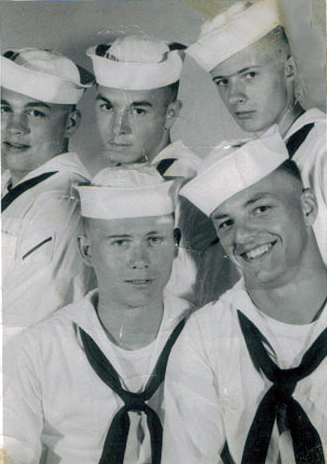
My career path resembles a mountain road comprised of gravel and potholes sometimes and four-lane expressways at others. As I stated earlier, I began my career as a Navy enlisted man, and after high school, I was sent to Norfolk, VA, to start my active duty period. After flunking out of Radio School, I was assigned to the USS Mullinix DD-944, a destroyer based in Norfolk. While there, I served in the Deck Gang and the Gun Gang. Primary job while underway and during special sea detail was Helmsman. Loved it!!
Released from active duty and back to reserve status, I returned home for three months before signing up with the Air Force and going to Denver, Colo., for nine months of Electronics School for B-47 Bomb/Navigation Repair. For four years before they retired the B-47, did that in Lincoln Neb, then cross-trained to a B-52 Tailgunner.
Spent five years in Seymour Johnson AFB, NC, with one trip to SEA.
After five great years in NC was transferred to Loring AFB in Maine. Spent four years there on another trip to SEA. Was relieved of flight status for medical reasons and was cross-trained into the hospital in the Psychiatric career field. I was transferred to Adana, Turkey, for 15 months and then back to the US to Andrews AFB Md as Superintendent of Psychiatric services.
After 18 months there, I was selected by the AF Chief of Staff and two other individuals to set up a personnel evaluation office at the AF’s Survival School at Fairchild AFB, Spokane, Wa.
I retired there after three years.
If you participated in any military operations, including combat, humanitarian and peacekeeping operations, please describe those which made a lasting impact on you and, if life-changing, in what way?
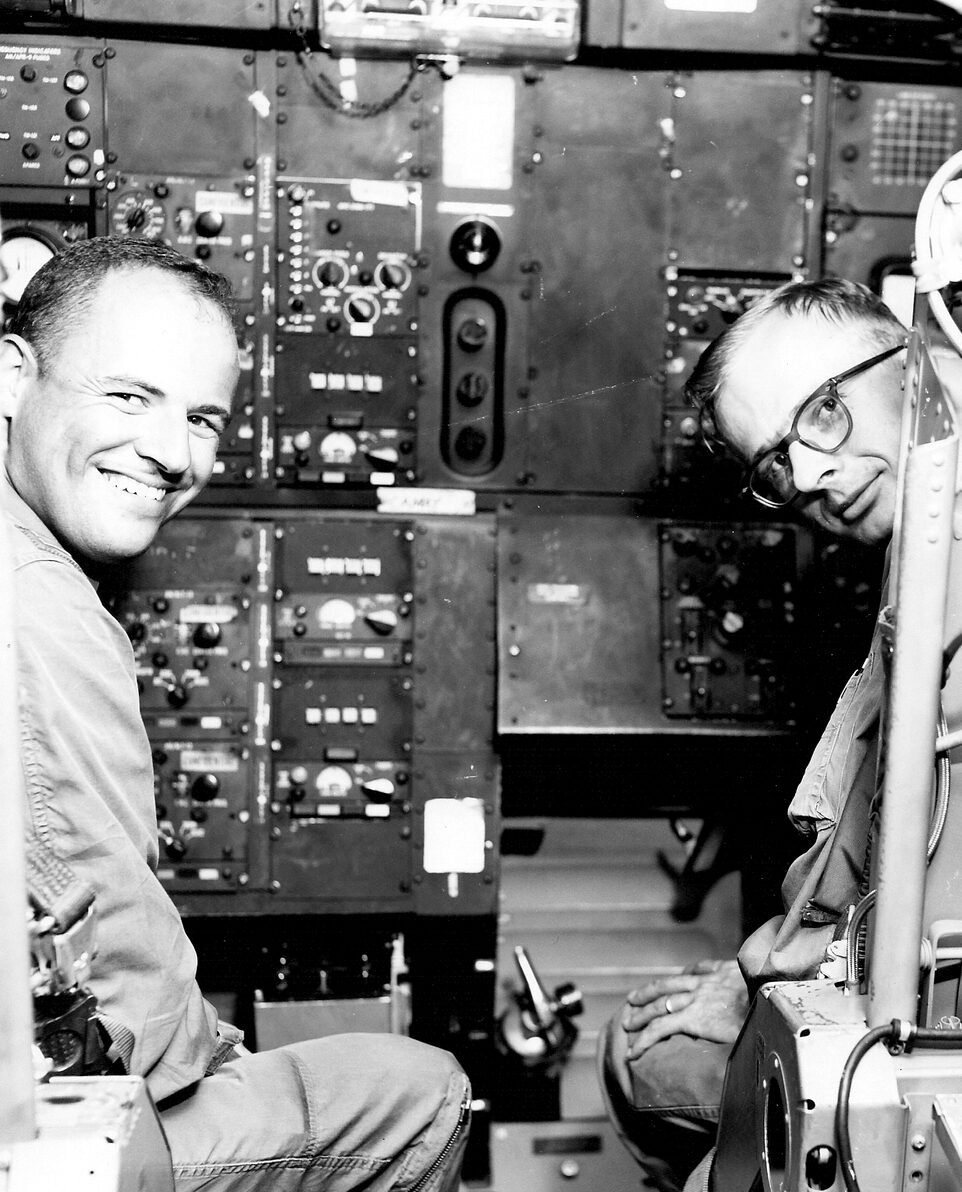
I flew a total of 58 combat missions during two tours to SEA. On the first tour, I flew two months out of Anderson AFB in Guam, two months out of Kadena AFB in Okinawa, and two months out of U-Tapao AFB in Thailand.
On the second tour, I flew out of Guam and participated in the 11 days of the “Christmas” bombing of North Vietnam. I only flew one of those missions as we were shot down but recovered safely, although I received some injury to my back and neck from the ejection.
Did you encounter any situation during your military service when you believed there was a possibility you might not survive? If so, please describe what happened and what was the outcome.
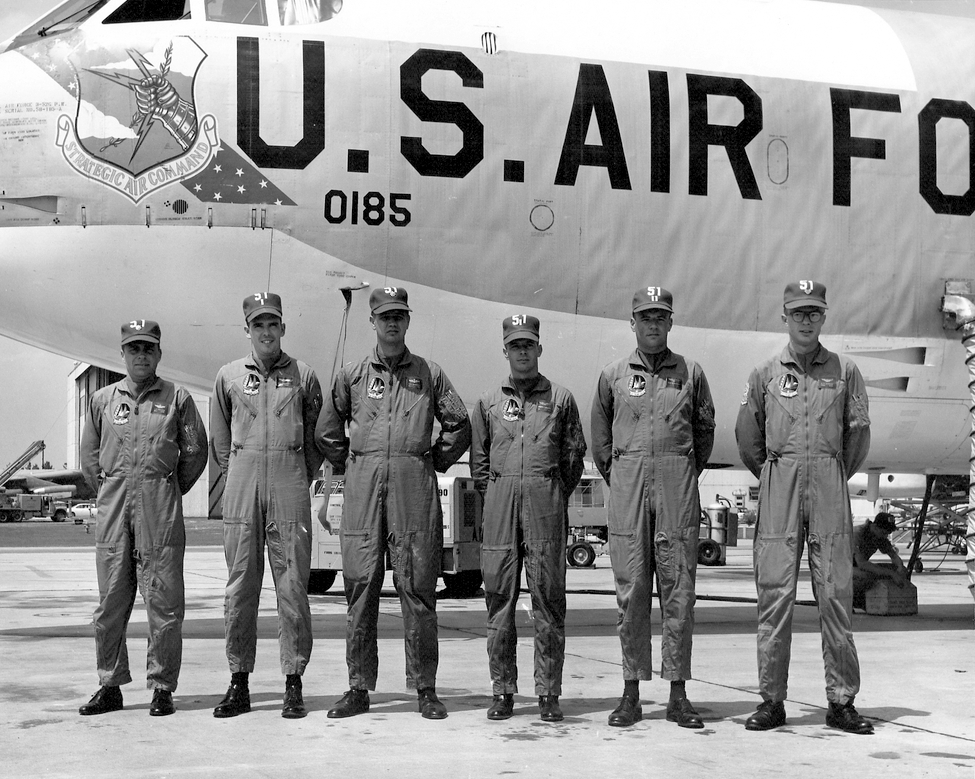
On Dec. 20th, 19 72, my B-52 crew was assigned to be part of the bombing raids on Hanoi N. Vietnam. We were assigned the call sign of Brass 03, part of a 90-plane sortie that left Anderson AFB. Guam at about 8:30 pm on the 20th. After takeoff, it was determined that our Electronic Defense Equipment was inoperable. We found out later that our aircraft, along with all the similar models, did not have Electronic Defense Equipment that was capable of defeating the SA2, the surface to air missiles that inundated the city of Hanoi. This was the third day of these bombing missions, and we had already lost five aircraft to missile strikes with the loss of 30 crew members, several killed, and many more becoming POWs of the North Vietnamese. Because of our failed equipment, we changed places in the formation and became Brass 02 with the thought that being in between two other aircraft, their ECM protection would cover us. My gunnery system checked out in good shape, so we at least had that defensive equipment, but two previous attempts by enemy fighters to close and shoot down a B-52 ended in both being shot down. So the feeling was that they would not attempt that again.
The bombing run began with the Pilot and Copilot reporting lots of missile sightings coming our way but not close enough to cause us to stray from our track or mission. The Copilot reported two misses heading towards us before dropping our bombs. After bomb release, we entered a programmed high degree bank to get away from the target and were met with a 100-mph headwind, which basically cut our airspeed, and two SA 2 missiles struck us.

The SA2 missile does not have to impact the aircraft to cause damage. When it is in proximity or a time period, its warhead explodes in a circular shape of shrapnel. I heard a thump similar to what you would hear if you slammed a car door very hard. There was an immediate loss of electricity, and my equipment went dark, as did all lighting in the aircraft. This was followed by another “thump” but not as loud.
We still had interphone communication between crewmember as this system runs on battery power. I heard the Pilot say, is everyone Ok? We all reported in as good to go. The missile strikes destroyed three engines on one wing and two on the other. This caused a loss of all electrical power and all hydraulic power and obviously made the aircraft difficult to fly. The Pilot then said, “ok, we have some control of the aircraft. Nav team, get me a heading away from here and towards Thailand while we figure out our options.” Of course, none of us wanted to bail out over the area we had just bombed, so the object was to get as far away as the plane could get us. The pilot team was trying to fly an 8-engine plane on three engines, so they had their hands full, and the Nav team was working with flashlights and a map trying to get us a course to safety. The EW and I had nothing to do but pray and hope the plane wouldn’t explode or fall out of control.

The Pilot asked me to get on our survival radio and let everyone know our intentions. Each of us had two survival radios in our survival vest, so I got mine out and began to call. “This is Brass 03; we have been hit and lost several engines; we have no electric or hydraulic power and attempting to reach November Kilo Pappa.” “Correct that this is Brass 02 Brass 02?”. We had heard of a previous crew bailing out by NKP several months earlier, and the rescue choppers were in the air before the crew bailed out. This put the crew descending into the chopper’s rotors, not a pretty situation, and our Pilot didn’t want to repeat that scenario.
The Pilot came on the interphone and said, “ok, this is the plan; we will stay with the aircraft as long as possible and try to make it to Nakom Phenom Thailand, a US base, before we have to leave the aircraft. But if that Red Light comes on, do not hesitate to leave the aircraft. He did not want to use the term “Bailout” light as we were all thinking of what we had to do. The Pilot and Copilot did a fantastic job of flying the dying aircraft for 40 minutes before he said, “we are at 10,000 ft, and NKP is just in front of us, and the Red light came on.
In the B52, the is a special sequence for a bailout with the Navigator going first, and in the event that someone’s seat does not eject, they can go out the opening created by the Nav’s ejection. After that, the sequence is Gunner, Radar Navigator, EW, Copilot, and Pilot. Well, before the Nav could eject, the EW beside me ejected, and I was thinking, “Hey, that’s not right,” when the Nav ejected. This caused a tremendous whirlwind inside the cabin, and when I released the hatch above me, a blackout curtain flew up and covered my ejection hatch. I felt that it might foul my parachute if I ejected into that curtain, so I reached up to remove it, and it flew out of the hatch. As I was settling back into my seat, I inadvertently squeezed the trigger on my seat, and my head was immediately slammed into my chest as the seat fired. The next thing I remember was tumbling head over heels, and then the chute opened. I looked up at my chute to ensure there were no crossed lines or torn panels, then looked around to see if I could see any of the other crew. I counted five other chutes and wondered who didn’t make it out.
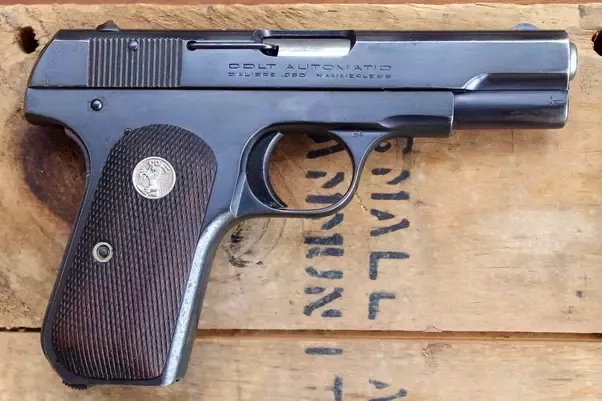
After counting again, I realized I wasn’t counting myself, so we all had gotten out, and apparently, all had good chutes. I then took stock of my situation, and there was absolute silence, a full moon, and I could see the land below me, most of which was trees with a small clearing here and there. I had initiated the “two-line” cut on my chute, almost without thinking, which gave me some semblance of steering. I began to try and steer for a small clearing as I got closer to the ground. I could see, off in the distance, where the plane had hit the ground. In my mind’s eye, it looked as if the aircraft had been set down in the midst of a fire. I found out later during a debrief that there was nothing but a big hole in the ground. I had now gotten closer to the ground, so I prepared myself to do a parachute landing fall. This is when you put your feet together, slightly in front of you, and hit and roll. We had practiced this in Survival School.
Unfortunately, I had my feet too far out in front of me, and when I landed, I hit hard on my ass. But I was on earth and safe and not hurt. I got my flares out in preparation for signaling the rescue chopper that I could hear in the distance. When he came in sight, I lit the flare, and he turned and came toward me. They lowered the “jungle penetrator,” which was a device that looks similar to a three-legged anchor. You pull down one leg, straddle it, put the safety strap around you, and up you go. Just about the time I had reached the top of the trees, the chopper lost altitude, and I thought to myself, great, I just went through all that crap, and now I am going to die in a chopper crash. The chopper regained altitude, and I was brought on board. We then went to see if we could pick up someone else.
We found the Pilot and picked him up. When he was brought into the chopper, we hugged each other like long-lost brothers. He was hurt; he had got his left leg caught in his parachute lines, which pretty bad stretched his leg tendons as he descended with one leg straight up beside him. We then headed for the base and base hospital, where we were all checked out. The Radar Navigator had a dislocated shoulder from his downward ejection. The EW had a big cut on his forehead when the Navigator’s survival kit hit him during his descent. His story is a little different than the rest of the crews. It seems as though he landed next to a road and tried to flag down a car to take him to the base. Picture, if you will, driving down a road late at night, and all of a sudden, this figure comes up out the side of the road, wearing a flight helmet, blood streaming down his face and all of his parachute paraphernalia hanging off of him.
I probably wouldn’t have stopped myself. He finally pulled his gun; we all had a .38 caliber pistol in our survival vests and got someone to stop. When he got to the base gate, they didn’t know what had happened. Needless to say, they were quite suspicious of this figure out of the night, requesting a car to take him to the base hospital. He finally convinced them. The Pilot and I were the last to be picked up, so the rest of the crew was already at the hospital when we went there. When we walked in, they were trying to reset the Radar’s shoulder, he was more interested in the good-looking nurse, but they were finally successful. They put us all in a room and told us to try and get some sleep.
When you have adrenaline pumping through your system for the last 3 or 4 hours, there was no way we were going to sleep. They even tried to give each of us a sedative, but it had no effect. The next thing we knew, the Non-Commissioned Officer came in a gave us a bottle of booze, and we partied on. About 10 am, they came in and said there is a plane going to Ut Tapao, another AF base in Thailand, so that will take you there, then you will get a flight back to Guam.
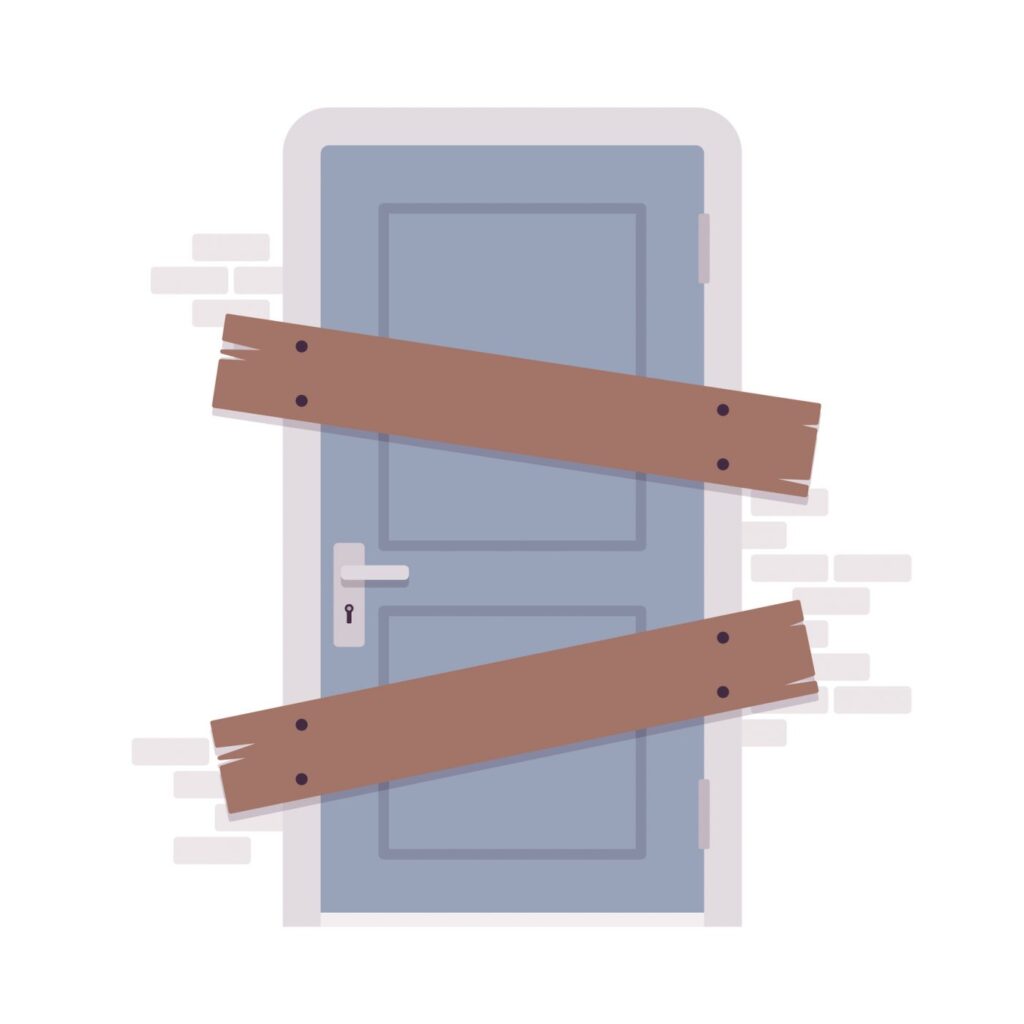
When we landed at UT, we were getting off, waiting till those in front of us heft the plane, when I heard this voice saying, “Where the Hell is that Schryer?” My old squadron commander from Seymour Johnson AFB, Col Don Davis. When he saw me, he grabbed me in a big bear hug and said, “I am so glad you are safe.” He then took us to the Officer’s Club for lunch before we were on a plane back to Guam. When we got back to a room, I think it finally hit me how lucky we really were. The door to our room had been nailed shut. This was done on all the crews that were shot down to preclude any unauthorized people from entering the room until an official determination was made of their status and they had returned to their base.
We finally got the nails removed and crashed for the remaining day. The next day we were debriefed by some staff personnel. It got nasty as we questioned their tactics, sending all the planes on the same heading to the target in groups as large as 90 aircraft and sending aircraft into a lethal zone without equipment to protect themselves. Needless to say, we were pretty pissed off. And were cautioned about insubordination, but at the moment, we didn’t care. The next day they had us on a plane back to the states. They said it was 30 days “Survivors Leave,” but I think it was to get us away from other crewmembers and our bad attitude. In any event, I arrived home at 11 pm on Christmas Eve.
Of all your duty stations or assignments, which one do you have fondest memories of and why? Which was your least favorite?
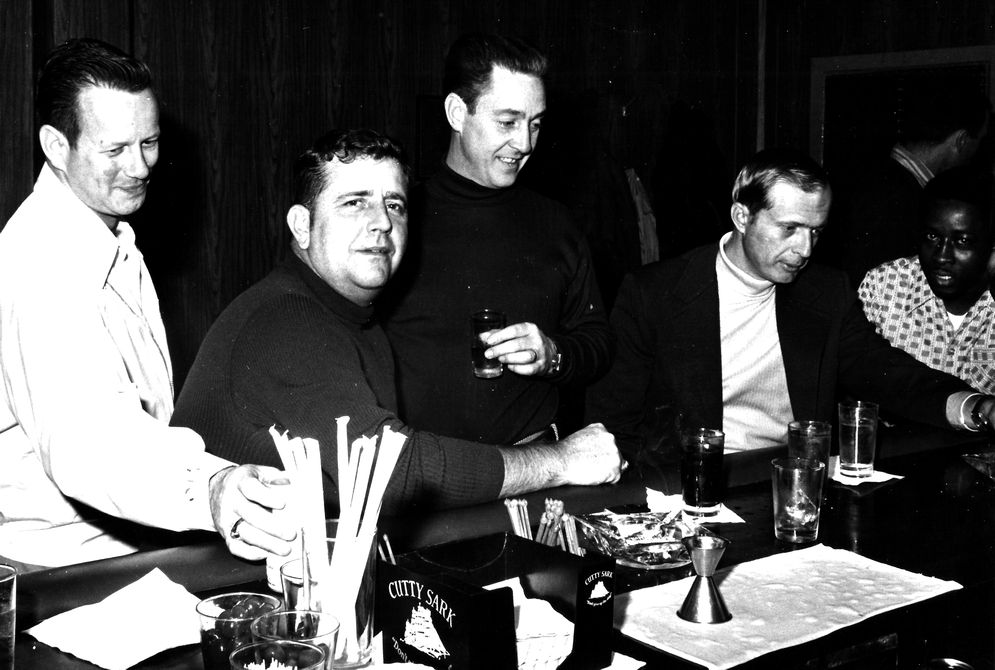
My favorite station was Seymour Johnson AFB because that is where I met and married my wife of 53 years.
My least favorite was Incirlik Turkey, and it was a 15-month unaccompanied tour.
From your entire military service, describe any memories you still reflect back on to this day.
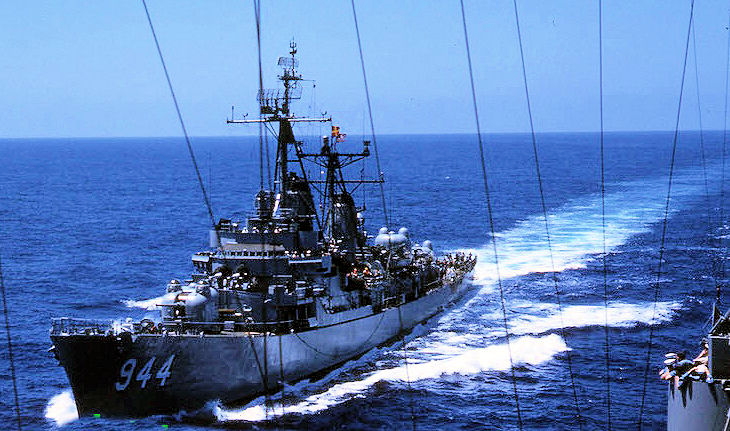
Being a 19-year-old kid and steering a 428 ft man of war next to an aircraft carrier to transfer supplies and steer that same ship into and out of harbors. Memories of each and every place I was stationed, my youngest daughter being born, and I couldn’t be there, driving to the base and being told to go home because the base was closed due to temperatures being below -50 degrees, my crew members on the mission we were shot down.
Watching the POWs coming home and knowing I had a small part in their release. Being part of the selection team that selected the first female survival instructor and my retirement ceremony.
What professional achievements are you most proud of from your military career?
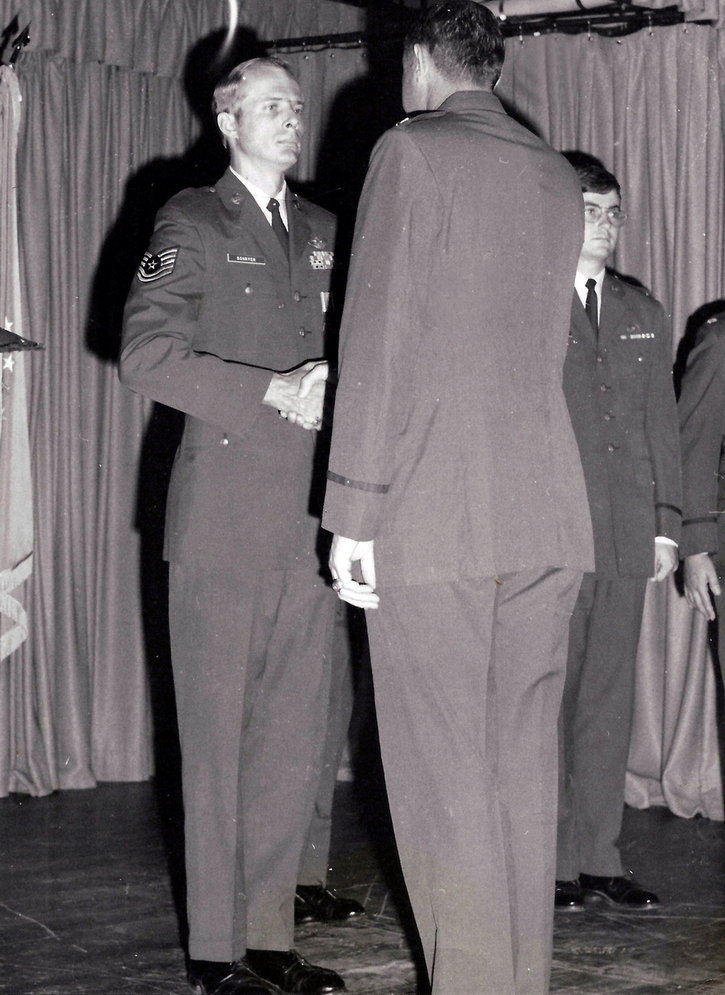
I received the Distinguished Flying Cross and Purple Heart for the mission in which we were shot down. Our aircraft was hit by 2 Surface to Air Missiles, which caused damage to 6 of our eight engines and lost all hydraulic and electrical power, including our aircraft radios. I used my survival radio to advise our Cell Leader of our situation and to coordinate our possible rescue with the rescue aircraft out of NKP AFB in Northern Thailand.
Of all the medals, awards, formal presentations and qualification badges you received, or other memorabilia, which one is the most meaningful to you and why?
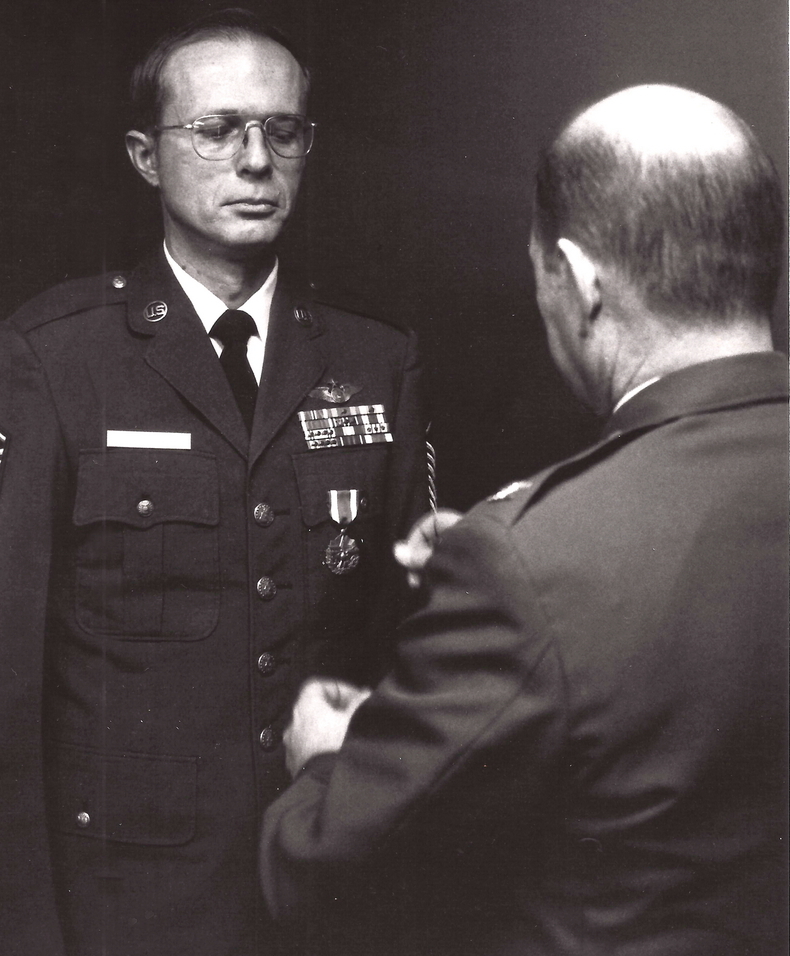
Probably the DFC and Purple Heart because these I earned, the rest were presented for time served or atta-boys, etc.
Which individual(s) from your time in the military stand out as having the most positive impact on you and why?
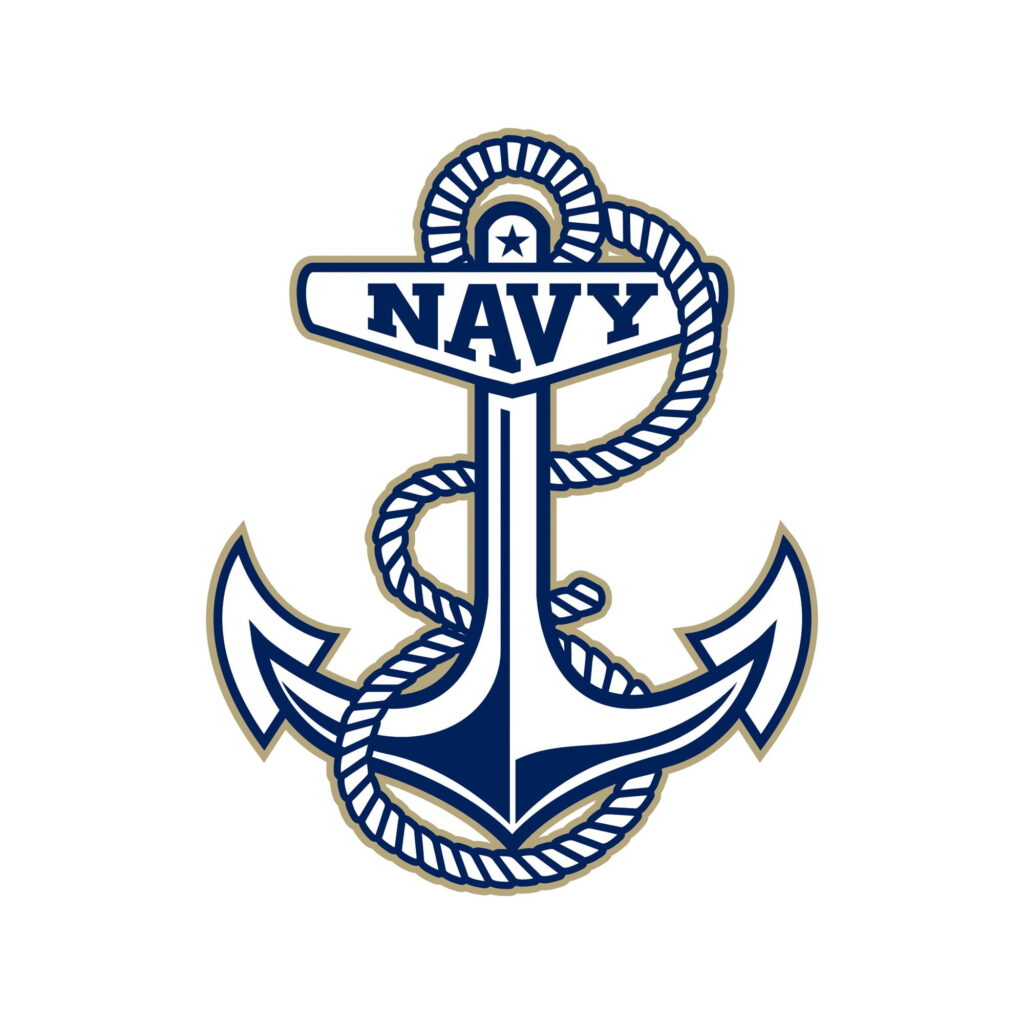
BM1 Daniel Gill was my first real boss in the Navy, and he was one strict, sharp and uncompromising individual. At the time, I hated him with a passion because he was always on my ass to do better but later realized that he was the epitome of a US military man, and if I was going to make the military a career, he was a good role model. Although he has long been gone, I would hope that he would be proud of what I had done with my career if he were still alive.
List the names of old friends you served with, at which locations, and recount what you remember most about them. Indicate those you are already in touch with and those you would like to make contact with.
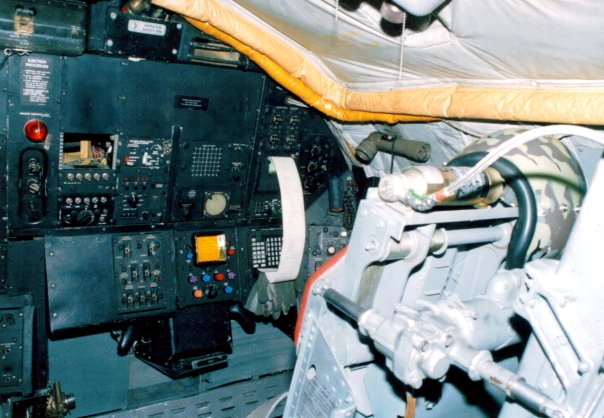
First would be BM1st Class Daniel Gill, then maybe Larry Sustar, my crews at Seymour Johnson AFB, one of which I am still in touch with. My crews at Loring, especially the crew of Brass 02, and we all are still in touch. Some of the Gunners I served with at both places.
I have been trying to get in contact with Larry Sustar for years to no avail.
Can you recount a particular incident from your service, which may or may not have been funny at the time, but still makes you laugh?
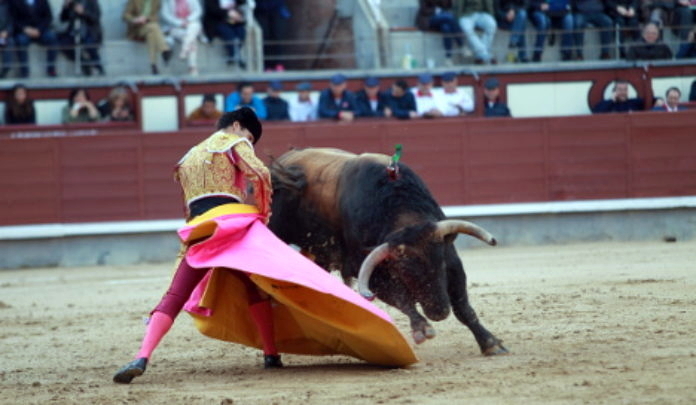
One of many: We were lined up on the taxiway at U-Tapao, waiting to take off on a bombing mission over S. Vietnam. A previous mission was just landing, and one of the planes bounced pretty hard on landing and bounced several more times before finally settling on the surface. At every bounce, a Gunner named O’Dell came on the Guard channel for everyone to hear it said, “Take That Runway, and that, and that……..and that………and that.”
One was when a group of guys from the ship attended a Bullfight in Barcelona, Spain. We immediately realized that the bull had no chance, so after a few beers, we began to cheer for the bull. Needless to say, that was not appropriate, and we were soon escorted from the arena.
Another time a friend and I went to Florence, Italy, for a week. The second day we were there, we ran into a couple of good-looking girls and tried to talk a combination of English and Italian to them. They both broke out laughing and said they were College freshmen from the University of Minnesota, to our chagrin. We all had a good laugh and spent the rest of the week touring the city together.
What profession did you follow after your military service and what are you doing now? if you are currently serving, what is your present occupational specialty?
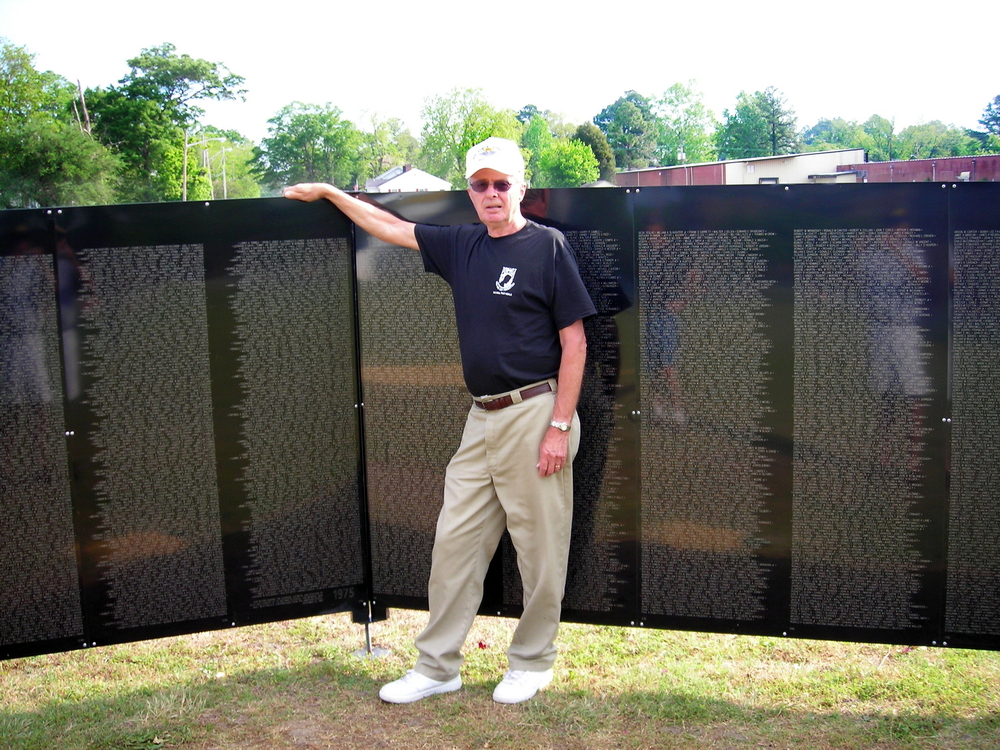
After my service, I worked at several professions, including cowboy, ranch hand, college student, 7-11 sales clerk, and finally settled on boat building.
I retired again in 2006 from the boat building industry.
Now I spend my time with the VFW local political groups and care for my invalid wife.
What military associations are you a member of, if any? what specific benefits do you derive from your memberships?
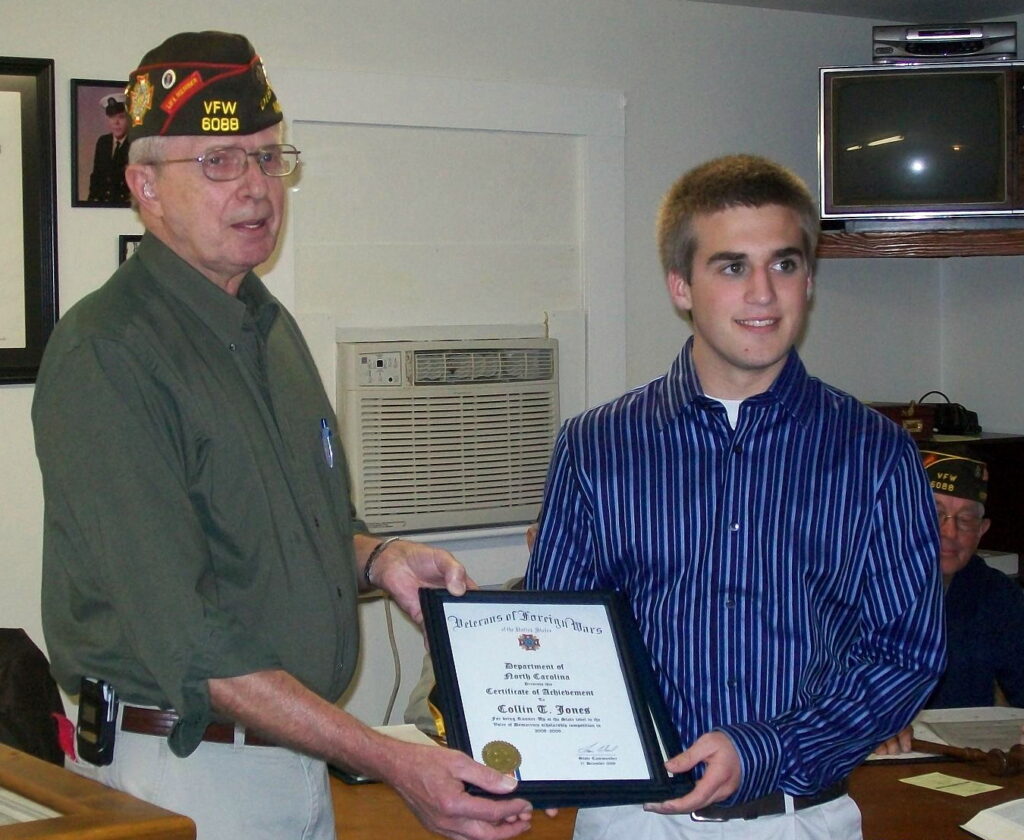
I am a life member of the VFW, DAV, Vietnam Veterans Assoc. and Air Force Gunners Associations. I not only get the benefit of great comradeship, but I get the benefit of all the work those before me have done to ensure that I get good treatment from the VA, college scholarships, and great health care. By belonging to these organizations, I help to provide this to those still serving.
I have served in all positions of the VFW from Sgt. at Arms to Commander of two posts to District Commander.
In what ways has serving in the military influenced the way you have approached your life and your career? What do you miss most about your time in the service?
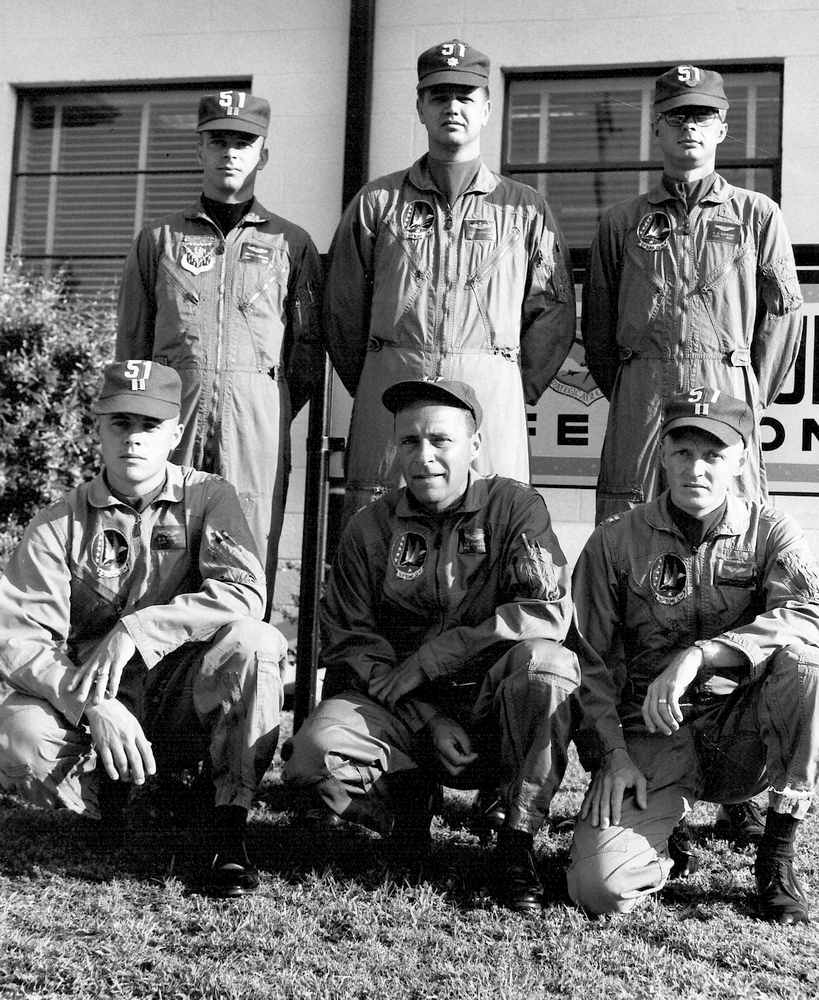
First of all, it made me grow up and realize that what I made of my life was primarily up to me and that hard work was going to be the key to any success that I might achieve.
What I miss most is the camaraderie. In all the civilian jobs since my retirement, I have never found that same “togetherness.”
Based on your own experiences, what advice would you give to those who have recently joined the Air Force?
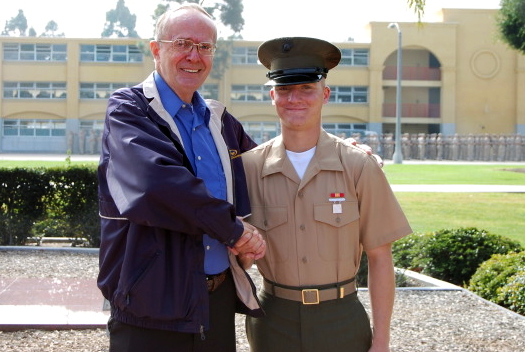
I have a grandson in the Marine Corps who makes me so very proud who will be going to Afghanistan in the coming months. I naturally fear for his safety and know that his combat experience will impact his life in ways he can’t imagine. Those who serve beside him will be friends for the rest of his life. Today’s service people are having a tough time with the multiple in-country assignments, as are their families. Fortunately, today the American people view them in a better light and are more supportive.
In what ways has togetherweserved.com helped you remember your military service and the friends you served with.

It has allowed me to reconnect with some friends I was stationed with during my service.
PRESERVE YOUR OWN SERVICE MEMORIES!
Boot Camp, Units, Combat Operations
Join Togetherweserved.com to Create a Legacy of Your Service
U.S. Marine Corps, U.S. Navy, U.S. Air Force, U.S. Army, U.S. Coast Guard

0 Comments